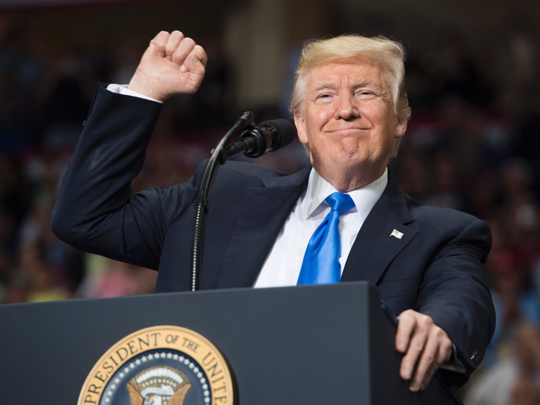
It lasted from March to July 2017, but the ban on most electronic devices larger than a mobile phone in the cabins of direct flights to the United States from 10 airports in the Middle East, North Africa and Turkey, was lifted after Washington introduced new security measures.
The original ban was brought in after intelligence officials apparently learned that terrorists from Daesh (the self-proclaimed Islamic State of Iraq and the Levant) intended to produce a bomb that could be hidden inside such devices and, presumably, target one or more aircraft bound for North America. Mercifully, no incidents were recorded although new global safety measures, introduced even for those flying from Mexico and Canada — two relatively safe countries — will mean additional passenger inspections. We will now have heightened screening of electronic devices (i.e. laptop computers may be checked more thoroughly), protocols around aircraft and in passenger areas may be improved, the use of advanced technology expanded, and the establishment of additional pre-clearance locations around the world, where passengers may be isolated from the rest of any airport’s population, increased.
There is no doubt that terrorism is a threat and that security responses are necessary, even if 99.99 per cent of all flying passengers do not pose a danger to anyone, which begs the question: What wrong are we doing to earn such attention?
For starters, and in their zeal to appear wise, the United States Department of Homeland Security (DHS) and the Transportation Security Administration (TSA), seem to rely on historical precedents to adopt reactive measures to every event without practising smarts. In other words, after Richard Reid attempted to blow up a Paris-to-Miami flight on December 22, 2001, with explosives packed into the shoes he was wearing, TSA directed passengers to remove their shoes for scanning.
When Umar Farouk Abdul Mutallab attempted to detonate plastic explosives hidden in his underwear while on board an Amsterdam-to-Detroit flight on December 25, 2009, the TSA introduced pat-down procedures over the head, neck, arms, torso, legs, and feet, as well as head coverings and sensitive areas of the anatomy — precedents that brought us all the way to the laptop ban of recent months.
None of this is particularly smart, of course, because in our quest for wisdom, which requires us to take those measures that will prevent terrorist acts, we seem to have concluded that extensive and expensive security measures are good for society.
They are not. In fact, by persuading ourselves that we can literally “buy” security, or all knowledge for that matter, we empower irrational authority and secrecy, both of which destroy what’s left of any ethical basis for civilisation.
Contemporary civilisation is on the move as the on-the-go billions of travellers each year affirm, but we have to be careful not to surrender our surviving conception of virtue by using secrecy to avoid accountability.
To be sure, DHS and TSA are duty bound to test new procedures, but when TSA officers start looking into paper products, for example chocolate wraps, or when a passenger is required to separate out books and magazines, one wonders whether such scrutiny advances anyone’s security.
Naturally, while the TSA argument is that paper may obscure other items on screening machines, the time has come to ask whether throwing more financial resources will help solve this particular problem. While we all accept the inevitable “greater scrutiny of passengers”, what kind of civilisation will we bequeath upon future generations when reading materials are scrutinised? Should someone reading a book on Arab political affairs, or Muslim literature, be worried about discrimination as was the case with Faizah Shaheen, a British psychotherapist who was detained by police at Doncaster airport on July 25, 2016, simply because she was reading a book titled Syria Speaks: Art and Culture from the Frontline?
There are many similar cases, including a 2009 student travelling from Philadelphia to Los Angeles who was grilled by officers because he had Arabic language flash cards on him (he was learning the language), as well as a book called Rogue Nation: American Unilateralism and the Failure of Good Intentions.
The lesson of the travel ban is now rather clear: We are accumulating material values instead of focusing on the truth, as the secret intelligence culture, which is antithetical to democracy and allows for the accumulation of wealth for the privileged. Such a process enables the rise of plutocracy and neo-fascism, neither of which is a particularly smart system to emulate, much less apply in our daily lives.
This does not mean that travellers must not respect rules and regulations in place, but that decision-makers ought to weigh the value of unquestioning submission to authority instead of educating the public to remain alert and inform law enforcement personnel of suspicious activities. Our duty is to interject morality towards each other to prevent endless wars, not to pigeonhole ourselves into ephemeral bans.
Dr Joseph A. Kechichian is the author of The Attempt to Uproot Sunni Arab Influence: A Geo-Strategic Analysis of the Western, Israeli and Iranian Quest for Domination (Sussex: 2017).










